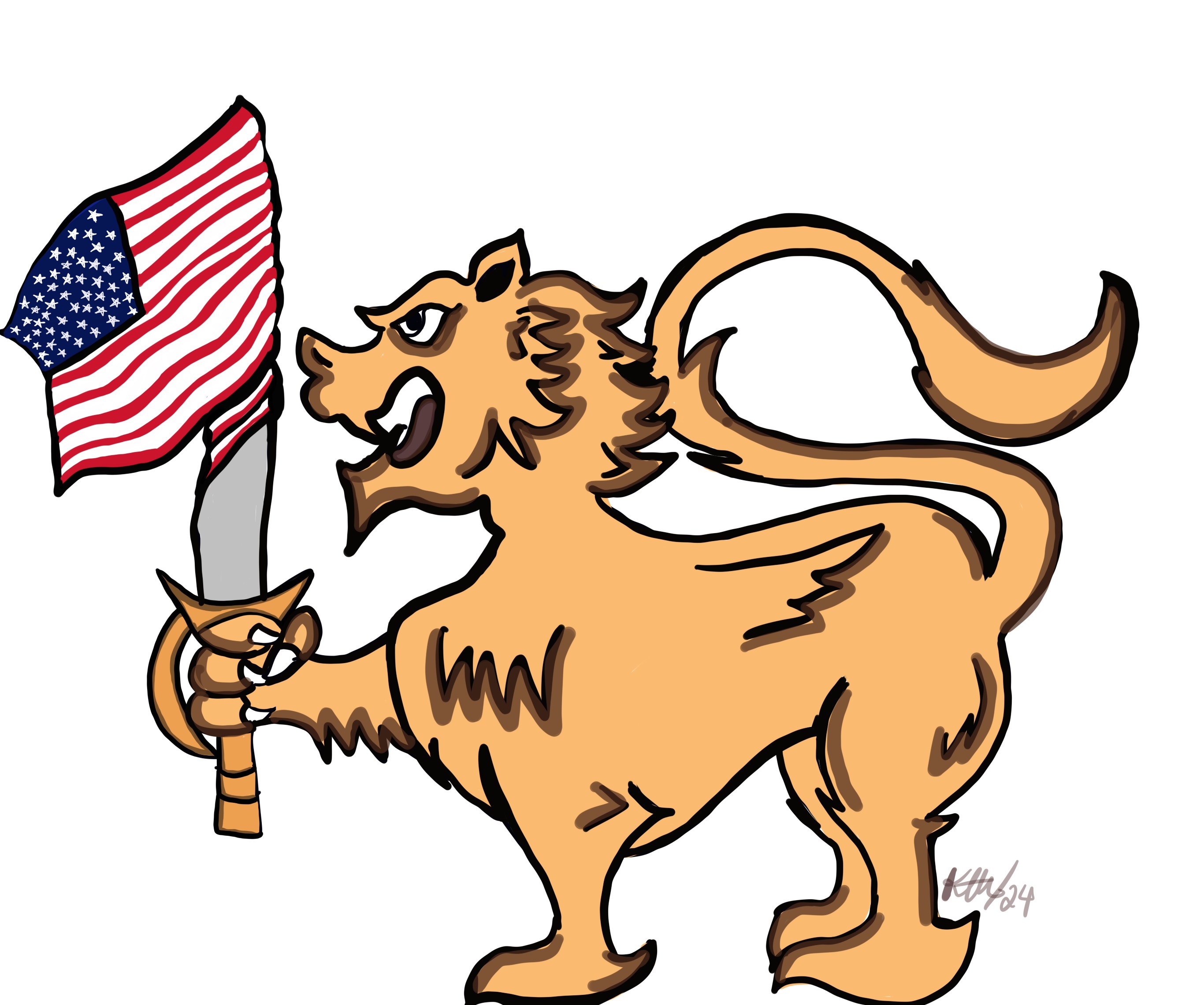Illustration by Keera Ratnam / @wavesofcolour
After yet another week of political turmoil in Sri Lanka, with the president accused of overriding the constitution and appointing a man the Supreme Court found personally participated in torture as the head of police, one might have imagined the authoritarian path the regime is trudging down was clear to all. Not so in Washington. One of the US State Department’s most senior officials flew into the island last week and declared that, despite the ramping up of repression, they would be looking to send yet another vessel to the Sri Lankan navy. The move sends a troubling message across the island and around the world. At a time when US foreign policy is coming under intense scrutiny, it seems as if authoritarianism is being rewarded in Sri Lanka once more.
Few people, inside or outside of the island, doubt the current state that Sri Lanka is in. The sting of the 2022 economic crisis may have eased slightly, but the pain is still being felt by many - particularly the working classes. As the island remains on a financial knife-edge, the situation has been exacerbated by the Wickremesinghe-led regime’s increasingly authoritarian turn. The controversial appointment of Deshabandu Tennakoon as the Inspector General of Police is just the latest such example. The recent military and police crackdown that has seen tens of thousands arrested, purportedly to curb illicit drug trade, has been marked by widespread rights abuses and brought with it UN condemnation. Even several US officials, including the head of USAID, publicly raised their concerns around the recently passed Online Safety Bill, a piece of legislation that ominously threatens freedom of expression online. All whilst the military occupation of the North-East and the almost routine abuse of Tamils that comes with it continues.
Despite this reality, Richard Verma, who serves as the Chief Operating Officer of the US State Department, arrived and announced his government would look to send another cutter to the Sri Lankan navy with US$9 million allocated to support the effort. This was coupled with meetings with senior military officials and moves to deepen defence ties between Colombo and Washington. This has been a concerning trend in Washington. Last month, Donald Lu, Assistant Secretary of State for South and Central Asian Affairs, claimed Sri Lanka is a “great comeback story” and referred to the anti-government protests that forced the war crimes accused Gotabaya Rajapaksa out of office as “mass riots in the streets”. The gentle expressions of concerns about safeguarding human rights and fundamental freedoms, are undermined by the more forceful words and tangible actions from the capital. Instead of pushing back against Sri Lanka’s illiberal trajectory, it seems as if the US is rewarding it.
Whilst the latest vessel is ostensibly for ‘maritime security’, a glance at navy activity in the North-East, where the bulk of Sri Lanka’s armed forces are stationed, illustrates how that may be interpreted in Colombo. Just last week the navy barred Tamil fishermen from going out to sea in Sampilthurai, where it still maintains a heavy presence and even runs a restaurant. The navy, much like the other branches of the armed forces, are also actively involved in land grabs and Sinhalisation efforts which locals are fiercely resisting. Indian fishermen too face routine arrests and assaults, with protests condemning the Sri Lankan military currently underway in Tamil Nadu. The Palk Strait remains tense. If it is a “connected, prosperous, secure, and resilient” Indo-Pacific that the US is seeking to build, it will not be through bolstering an unchecked Sri Lankan navy.
The aforementioned events of the last month alone, do not include the navy’s history of rape, torture, abductions and its leading role in the Mullivaikkal genocide. As an institution, Sri Lanka’s armed forces are rotten at its core, and need a complete overhauling. War criminals, who for decades have roamed with impunity, need to be held to account. And to break future cycles of violence and instability, as well as from an economic standpoint, Sri Lanka needs demilitarisation. But by providing new resources to the military, the United States is doing the exact opposite.
Given events across the globe, including in Gaza, it would have been thought that Washington would be more aware and sensitive as to how its policy around the world is perceived. Sri Lanka is seemingly the perfect stage for the US to demonstrate its self-professed commitment to the ideals of liberty, human rights and democracy. Instead, its recent actions, alongside its long history of Sri Lankan military support, ensures that those remain simply empty words.
We need your support
Sri Lanka is one of the most dangerous places in the world to be a journalist. Tamil journalists are particularly at threat, with at least 41 media workers known to have been killed by the Sri Lankan state or its paramilitaries during and after the armed conflict.
Despite the risks, our team on the ground remain committed to providing detailed and accurate reporting of developments in the Tamil homeland, across the island and around the world, as well as providing expert analysis and insight from the Tamil point of view
We need your support in keeping our journalism going. Support our work today.
For more ways to donate visit https://donate.tamilguardian.com.


